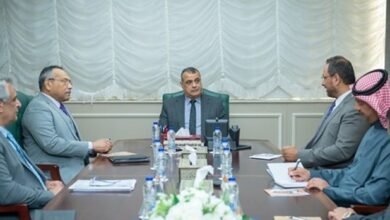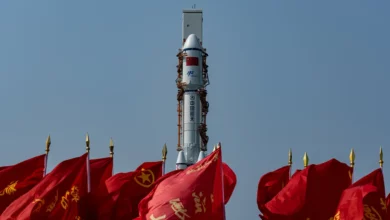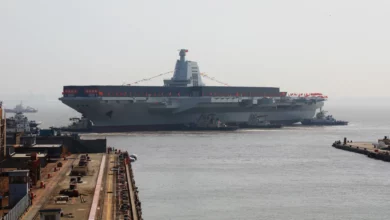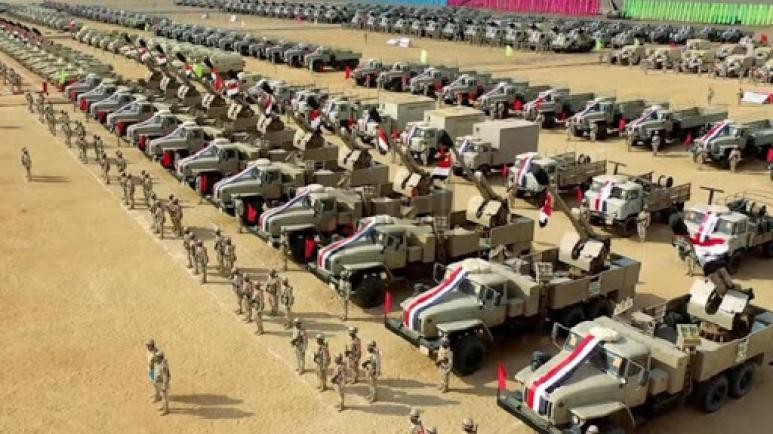On 28 January, tanks and military personnel were deployed across Egypt after massive protests swept away the police apparatus of former President Hosni Mubarak. The first encounters between the armed forces and civilians were quite warm: protesters jumped on tanks in joy and paused to take pictures with military forces in khaki uniforms.
Only two weeks later, Mubarak fell and handed power over to the Supreme Council of the Armed Forces (SCAF), officially ending his 30-year political reign. Since then, Egypt has been ruled by generals who have affirmed their commitment to the people’s revolution and pledged to establish a civil democratic order after a six-month transitional period.
Yet, in recent weeks, this military-civilian honeymoon appeared to be souring, unleashing a plethora of questions over the SCAF's performance and bringing into doubt the oft-repeated slogan “The military and the people are one hand.”
Many have been left disappointed by reports showing military involvement in torturing and using force against protesters, coupled with what many consider the slow pace of prosecuting and investigating Mubarak, his family and his close associates.
"There is a clear laxity, that might be the result of a lack of vision or bad will,” said Hassan Nafae, a political science professor at Cairo University. “So far, I believe it is due to a lack of vision because the military establishment is a traditional force by definition… It wants to bring about change but within tight limits.”
Since Mubarak left office, a flood of reports about his wealth made headlines in local and Western media outlets. On Saturday, the US newspaper The Washington Post reported that US government officials had received a formal request for help from the Egyptian prosecutor general that estimated Mubarak’s wealth at US$700 billion.
On Sunday, an audio message from the former president aired on the Saudi-owned Al-Arabiya satellite television network, in which he denied all allegations leveled against him and his family, while warning that he would sue media outlets that “tarnished his reputation”.
The speech stirred commotion in political circles, with many wondering how Mubarak could be held under house arrest in Sharm el-Sheikh, as the military claims, and still be permitted to address the media. On the same day, the prosecutor general said that Mubarak and his two sons will be summoned for investigations into corruption and the deaths of protesters during the revolution.
The recorded message came two days after hundreds of thousands took to Tahrir Square demanding the trial of the 82-year-old ousted ruler and his most notorious protégés, including Chief of Presidential Staff Zakaria Azmy, former Shura Council Speaker Safwat al-Sherif and former People’s Assembly Speaker Fathi Sorour. For almost two months, the trio remained unquestioned amid rumors that they were in the process of destroying evidence.
On Monday, the investigation of al-Sherif began on charges of illegal profiteering. He has yet to be investigated on charges of inciting a deadly attack on protesters on 2 February. Last week, Azmy was detained for similar charges. His detention came on the eve of the “Friday of Prosecution and Purging” protest held on Friday.
In the early hours of Saturday morning, as protesters prepared for an overnight sit-in, police and military personnel forcibly dispersed hundreds of demonstrators from the heart of Tahrir Square. According to an eyewitness, the military caught around 20 army officers who had joined the protest in violation of army discipline. A few days before the protest, a man claiming to be a former air force officer posted a video on YouTube saying that officers would join protesters to express their grievances vis-à-vis the military leadership.
In the stand-off, live bullets were reportedly fired, culminating in at least two deaths and tens of injuries. The SCAF denied the use of live ammunition and contended that the military intervened against “delinquents” and “thugs” who were deployed in the square by an influential politician of the former ruling party.
The incident sparked a ripple of outrage among activists on the street as well as in cyberspace. The social networking site Twitter swarmed with comments that accused the military of propagating lies and turning against the people. Some went further, demanding an overhaul of the military leadership, starting with the removal of Field Marshall Mohamed Hussein Tantawi, head of the SCAF and a former Mubarak protégé.
Many political forces fear that these demands could portend further confrontation with the military and put at stake the cohesion of the armed forces, the only state institution that could survive the recent political turmoil.
The 25 January Revolution Youth Coalition, a loose entity consisting of several youth groups, announced the suspension of its talks with the SCAF until the bloody incident on Saturday is investigated. In the meantime, the group warned against the deterioration of military-civilian relations at such a critical juncture in Egyptian politics.
“The military is the only institution left to us,” said Nasser Abdel Hamed, the coalition’s spokesperson. “We should wait for a few months until the military secures the democratic transition, because there is no other institution that can do that.”
In the meantime, the coalition opposed the engagement of any military officers in future protests. “This is not acceptable,” said Abdel Hamed. “This is a civil and peaceful revolution and should remain like that. If these officers have problems with the military establishment, they should solve them internally.”
The same concerns were voiced by political scientist Hassan Nafae.
"The confrontation with the military is a red line. We can criticize the SCAF since it is now assuming a political role. But calls for a confrontation with the military or the ouster of Tantawi should be a red line," said Nafae, adding that removal of Tantawi is an internal army matter.
Left-wing historian Sherif Younis, however, suggests that the issue of Tantawi is more complicated.
“Demanding the removal of Tantawi is not an internal military affair,” said Younis, adding that Tantawi, Egypt’s acting president, should not be immune to political criticism. “People raise that slogan not in objection to Tantawi’s performance within the military but in objection to his policies as a ruler,” he explained.
The responsibility to protect the army’s cohesion and avoid a military-civilian confrontation, according to Younis, should not only fall on the people’s shoulders. “It is a mutual responsibility,” said Younis, a history professor at Helwan University. “For its part, the military should heed the pro-democratic demands so that people can feel that the army is really siding with their revolution.”
So far, the military has introduced a set of constitutional and legal amendments that only pertain to presidential and legislative elections set for later this year and amended a law regulating the formation of political parties. Even that modification fell short of fulfilling the demands of most liberal forces, as it failed to meet demands to modify other repressive laws regulating the formation of associations, non-governmental organizations, professional, labor and student unions.
“The military is protecting a set of laws that belong to the former despotic state,” said Younis. By keeping these laws untouched, the SCAF is freezing the revolution, which could possibly lead to recurrent confrontation with protesters.
Younis, along with most secular political actors, believe that there is one path forward if the military wants to maintain its internal cohesion while also responding to popular demands. That would entail giving up its position of absolute rule and establishing a power-sharing mechanism with civilians through a provisional presidential council.




